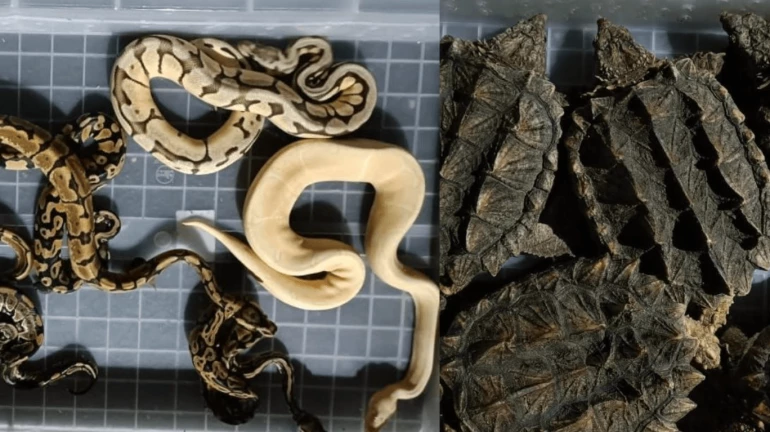
Cases of smuggling endangered animals crammed into boxes to Mumbai airport have increased and have become a cause of concern. In a move aimed at curbing illegal wildlife trafficking and ensuring animal welfare, the Directorate General of Civil Aviation (DGCA) has issued updated guidelines for the import of animals and birds by air. These revised instructions align with the regulations of the Indian Customs Department and the Animal Quarantine and Certification Service.
Previously governed by guidelines issued in 1985, the new rules have been prompted by rising concerns over animals arriving at Indian airports in distressing and sometimes fatal conditions. Fears that such incidents could lead to the spread of diseases—including zoonotic threats like COVID-19—have intensified the call for stricter enforcement. Animal welfare organisations and NGOs working to rescue illegally imported animals have repeatedly flagged these concerns, leading to this regulatory overhaul.
The DGCA has now mandated that all airlines and aviation services operating in India implement systems to prevent and detect illegal wildlife trafficking. Airline personnel at check-in counters, boarding gates, and onboard aircraft are to be trained to recognise and comply with the rules for transporting live animals and birds. Airlines have also been instructed to issue travel advisories and restrictions related to the carriage of wildlife.
The DGCA has made it clear that in instances of illegal wildlife importation, the full responsibility will rest with the airline involved. Airlines will be held accountable for:
The cost of repatriation of the animals or birds to their country of origin,
Their care and welfare until repatriation,
Completing all required documentation and compliance procedures
Also Read: BMC Moves Ahead with Plan to Relocate Cowsheds Following Court Order
Before repatriation, airlines must notify and coordinate with the Indian Customs Department, the Animal Quarantine and Certification Service, and other relevant authorities. Additionally, airlines are required to submit a detailed report to the DGCA within seven days of repatriating any wildlife.
These new directives aim to enhance airport-level vigilance, prevent illegal trafficking, and ensure ethical handling of live animals in air transport.





